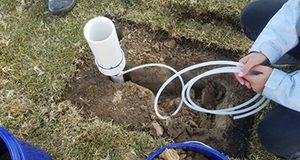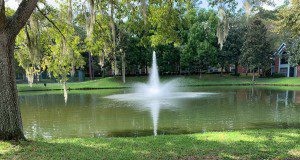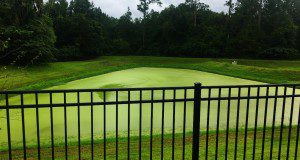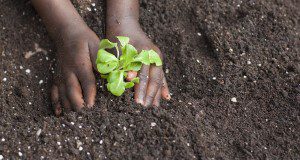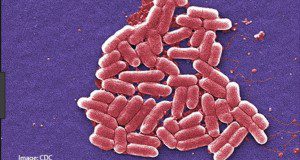Using lysimeters to collect water quality samples can provide a better understanding of nutrient or other solute migration below the surface, which can inform landscape management for environmental protection. This 6-page publication presents the materials, construction, installation, and management of a specific drainage lysimeter design in a step-by-step format. Written by Jovana Radovanovic, Eban Z. Bean, and Alexander J. Reisinger, and published by the UF/IFAS Department of Agricultural and Biological Engineering, February 2021.
https://edis.ifas.ufl.edu/ae554
Tag: Alexander J. Reisinger
Stormwater Pond Management: What You Need to Know about Aeration
This new 6-page document is intended to provide Floridians and their communities with information on a specific management practice in stormwater ponds: the use of fountains and other aeration approaches. These practices may provide opportunities both to improve water quality within the pond and protect downstream water quality. Specifically, this document gives basic information on fountains and the pros and cons of fountain installation and use. In addition, we provide information for pond managers or community decision makers on how to best manage ponds for effective pollutant removal in the pond and downstream water quality protection. Written by Samantha T. Howley, Steven P. Hohman, and Alexander J. Reisinger, and published by the UF/IFAS Department of Soil and Water Sciences.
https://edis.ifas.ufl.edu/ss695
Sources and Transformations of Nitrogen in Urban Landscapes
With 80% of Florida’s residents living within 10 miles of the coast, Florida’s aquatic resources are directly affected by urbanization. The intent of this new 6-page publication of the UF/IFAS Department of Soil and Water Sciences is to describe the urban nitrogen cycle for a nontechnical audience. Ultimately, this document is intended for individuals working in urban environments and concerned about nutrient pollution and water quality issues, but do not have a technical background and want to improve their understanding of nitrogen cycling. Written by Alexander J. Reisinger, Mary G. Lusk, and Ashley R. Smyth.
https://edis.ifas.ufl.edu/ss681
How to Properly Dispose of Unwanted Medications
Properly disposing of expired or unused medications can help reduce the prevalence of prescription drug abuse in Florida. It also helps prevent accidental ingestion by children or pets, helps prevent accidentally taking the wrong medication, and prevents medications from entering water sources. This new 3-page publication of the UF/IFAS Department of Soil and Water Sciences provides some dos and don’ts for disposing of your medications. Written by Alexander J. Reisinger.
https://edis.ifas.ufl.edu/ss680
Soils and Fertilizers for Master Gardeners: Soil Physical Characteristics
Soils are a foundational component of the landscape, providing a medium for plant root growth and playing a crucial role in nutrient cycling and water movement across the landscape. This new 7-page article describes the physical properties of soils, including soil formation in Florida, the soil profile, and water dynamics within soils, and provides a thorough reference for Master Gardeners and other individuals searching for a basic understanding of soil dynamics to apply to residential landscapes. Written by Amy L. Shober, Alexander J. Reisinger, Mary G. Lusk, and Sally Ann Scalera and published by the UF/IFAS Department of Soil and Water Sciences.
https://edis.ifas.ufl.edu/mg458
The Importance of Soil Health in Residential Landscapes
This 6-page publication’s purpose is to educate master gardeners and homeowners about the principles of soil health as well as practices that harm or nurture soil health at the residential scale. It also includes a description of the soil food web and the microorganisms that comprise it. This new publication of the UF/IFAS Department of Soil and Water Sciences was written by Sally Scalera, Alexander J. Reisinger, and Mary Lusk.
http://edis.ifas.ufl.edu/ss664
